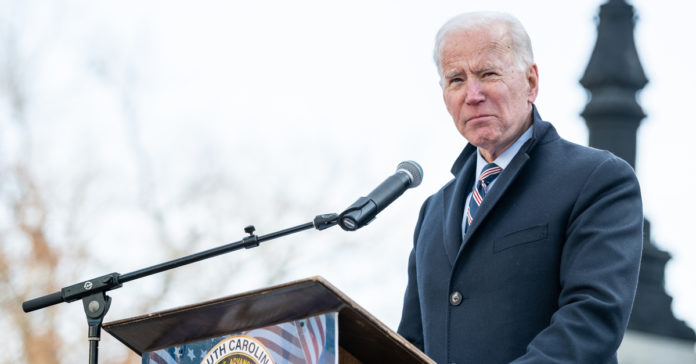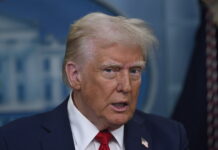Joe Biden is unlikely to radically reverse Donald Trump’s foreign policies if he eventually installs himself in the White House. The exceptions, however, could be re-entering the 2015 Iran nuclear deal and ending U.S. support for the Saudi-led war on Yemen.
Over the past four years President Trump has refrained from starting a major war in the Middle East, opting for smaller scale conflicts (against ISIS, for example), adopting a sanctions strategy against his enemies, and making several major weapon sales with Gulf states.
Mostly significantly, the Trump administration removed the U.S. from the JCPOA nuclear agreement and reimposed unilateral sanctions as part of its “maximum pressure campaign” to force the Islamic Republic to renegotiate a more comprehensive agreement over nuclear, regional and ballistic missile issues. Trump also oversaw the assassination of Qassem Soleimani, leader of the IRGC Quds Force.
The Trump administration was also one of the most pro-Israel administrations in history. It recognised Jerusalem as Israel’s capital and subsequently moved its embassy there. It recognised Israeli sovereignty over the Golan Heights. It brokered peace deals between Israel, the UAE and Bahrain and helped usher new relations between Israel and Sudan. And it cut off funds to the UN agency for Palestinian refugees, UNWRA.
In President Elect Biden’s inbox will be a resurgent Turkey, the continued war in Syria, ongoing violence in Libya, as well as the usual dilemmas posed by Iran and Israel/Palestine.
Iran
Biden has emphasised that the JCPOA nuclear deal remains the best tool for preventing a nuclear-armed Iran but, like Trump, he recognises that the deal has its flaws which need renegotiating.
Subscribe to our newsletter and stay updated on the latest news and updates from around the Muslim world!
However, Biden has called for a vastly different approach to Trump’s sanction-based policy in order to secure a better agreement with Iran. Biden described the administration’s decision to pull out of the agreement as “a self-inflicted disaster.”
Speaking to CNN in September, Biden said: “I will offer Tehran a credible path back to diplomacy. If Iran returns to strict compliance with the nuclear deal, the U.S. would re-join the agreement as a starting point for follow-on negotiations. With our allies, we will work to strengthen and extend the nuclear deal’s provisions, while also addressing other issues of concern.”
Israel-Palestine
Biden is a strong advocate of Israel and the importance of the U.S.-Israel relationship.
At the 67th Annual Israeli Independence Day Celebration in Jerusalem in April 2015 Biden began his speech: “My name is Joe Biden, and everybody knows I love Israel.”
Biden told the annual Saban Forum at the Brookings Institution in December 2014 that “if there weren’t an Israel, we would have to invent one.” He added, “We always talk about Israel from this perspective as if we’re doing (them) some favour. We are meeting a moral obligation. But it is so much more than a moral obligation. It is overwhelmingly in the self-interest of the United States of America to have a secure and democratic friend, a strategic partner like Israel. It is no favour. It is an obligation, but also a strategic necessity.”
According to the Biden campaign website: “Joe Biden believes in the worth and value of every Palestinian and every Israeli. He will work to ensure that Palestinians and Israelis enjoy equal measures of freedom, security, prosperity, and democracy.”
However, a Biden presidency is likely to change its style, if not substance, from the Trump era in its approach toward Israel. Whilst Biden has said he will not undo Trump’s decision to move its embassy to Jerusalem or its recognition of the Golan Heights, Biden will restore Washington’s ties with the Palestinian Liberation Organization (PLO) that Trump downgraded.
This likely includes resuming funding Palestinian programmes that “aid the prospects of peace” as well humanitarian aid and health care for the Palestinian people, all of which were fully cut by the Trump administration.
Biden has vowed to not approve the annexation of West Bank settlements if he were president, and that his administration would not give Israel a “green light” or recognise the move, saying “Israel needs to stop the threats of annexation and stop settlement activity because it will choke off any hope of peace.”
Biden has been supportive of the peace agreements between Israel and the UAE and Bahrain. Speaking after the signing of the Abraham Accords, Biden termed the UAE’s decision to recognise Israel as “ a welcome, brave, and badly-needed act of statesmanship” adding “it is a critical recognition that Israel is a vibrant, integral part of the Middle East that is here to stay. Israel can and will be a valued strategic and economic partner to all who welcome it.”
Saudi Arabia and the Gulf States
America has been a strategic partner and an essential pillar of Gulf security for the past 50 years.
But whilst Trump was a big fan of Saudi Arabia, Biden has committed to reassess U.S. ties with Riyadh. He told the Council on Foreign Relations that he would “end U.S. support for the disastrous Saudi-led war in Yemen and order a reassessment of our relationship with Saudi Arabia. I would want to hear how Saudi Arabia intends to change its approach to work with a more responsible U.S. administration.”
For the moment the U.S. Navy continues to participate in the blockade of the Yemeni coast. A Biden administration could suspend this activity as a signal to Riyadh.
Biden is also likely to press much harder on Saudi Arabia and the UAE to end the Gulf Cooperation Council’s (GCC) blockade on Qatar.
Turkey
Turkey has grown more assertive in the region over the last four years, aided partly by the ambivalent position adopted by the Trump administration over U.S.-Turkish ties, explained in part by Trump’s desire to maintain a good rapport with Turkish President Recep Tayyip Erdoğan.
But the former vice president has made several strong statements along the campaign trail on drawing red lines with Turkey, and has fostered warm relations with the American Hellenic community.
“The Trump administration must press Turkey to refrain from any further provocative actions in the region against Greece, including threats of force, to create the space for diplomacy to succeed,” Biden said in a statement. “I also call on Turkish President (Recep Tayyip) Erdoğan to reverse his recent decision to convert the Hagia Sophia into a mosque and to return this treasure to its former status as a museum, ensuring equal access for all, including the Orthodox faithful,” he added.
And in a video that surfaced in August, Biden expressed his willingness to work with “opposition leadership” in the country to topple Erdoğan in Turkey’s 2023 elections. “We can support those elements of the Turkish leadership that still exist and get more from them and embolden them to be able to take on and defeat Erdoğan. Not by a coup, not by a coup, but by the electoral process.”






















